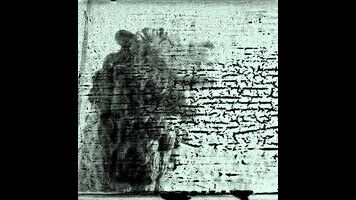Smashing Pumpkins rediscover their musical focus but lose lyrical depth

Lineup instability is an integral part of Smashing Pumpkins’ mythology. While on some level this personnel upheaval is a moot point—after all, frontman Billy Corgan is in charge of the band’s vision and aesthetic—the revolving group of collaborators has made it difficult to find a sonic through-line in the group’s output since (and including) 2007’s Zeitgeist. Certainly this flux fits the disparate music Corgan writes for Smashing Pumpkins; recent songs encompass surging space rock, gothic shoegaze, prog-influenced opuses, glossy hard rock and lilting synthpop. However, ripping up the lineup card for each recent album also inadvertently contributed to why records such as 2012’s lush Oceania are frustratingly inconsistent.
The new Monuments To An Elegy is a marked improvement. Another installment of the Teargarden By Kaleidyscope epic—and the predecessor to another album, Day For Night, that’s reportedly due next year—the record is the second in a row to feature Jeff Schroeder, who’s been Corgan’s guitar foil since 2007, and mixing from David Bottrill. More crucially, Monuments To An Elegy was produced by Howard Willing (who also worked on 1998’s Adore and 2000’s Machina/The Machines of God) and was mastered by Howie Weinberg, who also handled Smashing Pumpkins’ biggest ’90s hits.
This familiar support system (as well as compact drumming from Mötley Crüe’s Tommy Lee) provides much-needed backbone to Corgan and company’s creativity: Monuments To An Elegy is the most effortless-sounding Smashing Pumpkins album in years. Lee’s contributions are understated, except when needed, such as forceful punctuation when Corgan sings “I will bang this drum!” on “Drum & Fife.” Schroeder’s playing too sounds more confident, drawing texture and atmosphere from his previous group, starry-eyed shoegaze-pop band The Lassie Foundation.
Monuments To An Elegy is also incredibly focused. Only one song cracks the four-minute mark (the lightweight, new-wave-redolent “Run2Me”); otherwise, the album is full of three-minute bursts of tangled, yowling noise rock (“One And All (We Are)”), twitchy electro-pop (“Anaise!”) and keyboard-heavy grunge (“Monuments”). Best of all, Corgan’s songwriting again nods to the classic bands that shaped Smashing Pumpkins’ most engaging output: The raging “Anti-Hero” has chunky ’70s power-pop riffs à la The Cars, while “Dorian” has New Order’s midnight melancholy down cold. If anything, Monuments To An Elegy compares to Corgan’s 2005 solo effort TheFutureEmbrace, another record that adroitly melded jagged rock and more tranquil electro-pop.
Unfortunately, the album’s lyrics also skew toward New Order’s notoriously banal writing. Songs make sweeping statements and anthem-worthy proclamations, but never go beneath the surface to explain why listeners should be inspired. “Being Beige” asks, “The world’s on fire, so have you heard?” while “Monuments” revolves around the elementary-school-level couplet “I feel alright tonight / And everywhere I go is shining bright”—and then repeats the phrase, “Alright, alright, alright” throughout for added emphasis. Even the urgent “One And All”—which proclaims “One and all / We are, we are so young / We’re young, we’re young” on the choruses—never really explores this rabble-rousing insinuation with any depth. This thematic emptiness is disappointing, because Smashing Pumpkins’ complexity is part of the band’s appeal; even the overstuffed (or unsuccessful) moments are at least admirably adventurous or enigmatic. And so while Monuments To An Elegy is certainly a solid release, in the end, it’s most enjoyable when approached with managed expectations.